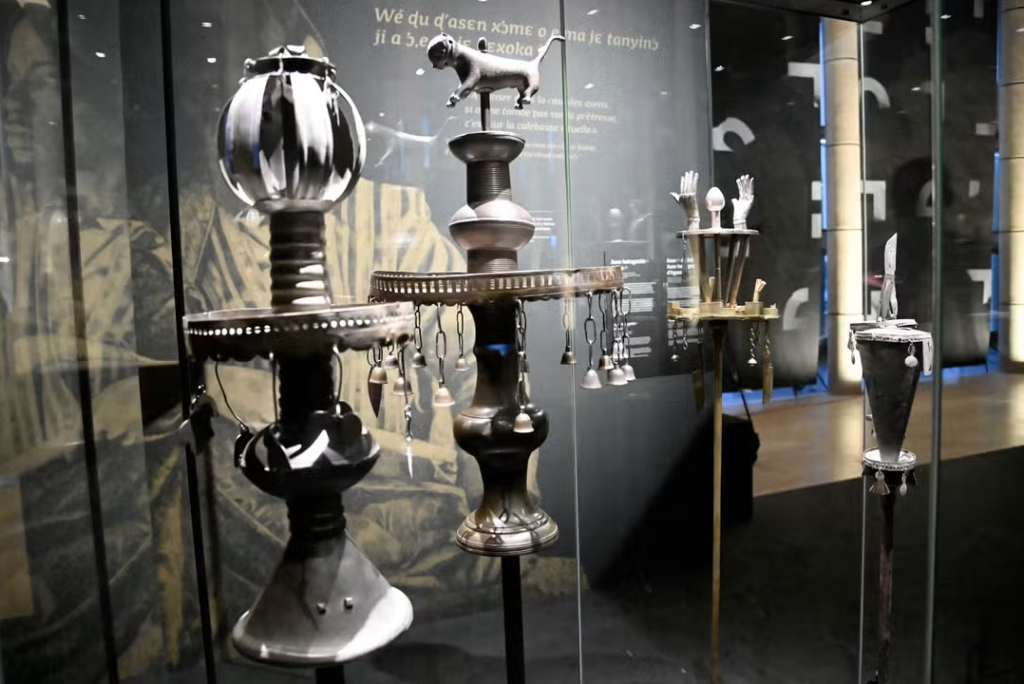The French government has just adopted a new bill that outlines the restitution of looted artworks from its former colonies. While the move seems progressive, France still maintains tight control over the process, deciding the terms of restitution on its own. This one-step-forward, two-steps-backward seesaw game displayed by the French government reaffirms its complete failure to grasp the contemporary landscape we live in—as well as its role as the looter of valuable ancient African knowledge systems.

The bill, presented on the 30th of July by Rachida Dati, maintains that the French government is “inalienable” (a fancy word meaning the law prevents the return of these items)—unless restitution happens strictly on French government terms. In effect, the bill protects the looters (the French state and its colonies) by presenting a rigid set of rules that African countries and their diasporas must follow in order to request the return of stolen cultural heritage.
These rules include:
- Proving the object was looted or unfairly taken
- Ensuring it will be used for public display
- Submitting to a lengthy review process controlled by French committees and courts.
Moreover, the bill only applies to stolen artworks between the years 1815 and 1972, covering the period from the Vienna Congress—following Napoleon’s downfall—up to the founding of the UNESCO Convention for the Protection of Cultural Heritage. Civil courts will handle all cases involving objects stolen after 1972.

The proposed bill denies full responsibility for looted items in public collections and seeks to reduce public suspicion. It also excludes military items, public archives, and shares of archaeological digs that the French Empire acquired during its colonial rule. It is important to note that it has been seven years since President Emmanuel Macron announced his revolutionary plan to return African heritage to the continent during a speech in Burkina Faso. Since then, France has successfully restituted only 30 items to their countries of origin.
“The government is rushing a deeply complex matter,” said Senator Pierre Ouzoulias, a key member of France’s cultural commission, in an interview with The Art Newspaper. “After years of delay—during which Rachida Dati did absolutely nothing to advance this bill—they now want to push it through without proper safeguards.” He added, “I call for a permanent scientific council made up of scholars, legal experts, and state representatives, and they must make their decisions and opinions public.” Ouzoulias believes this measure would prevent governments from using restitution to serve “diplomatic interests,” a concern he had already raised last year.
Pending items from the continent include: Algeria (personal effects of rebel leader Abdel Kader), Benin (most notably a statue of the Vodun god Gou), Ivory Coast (around 150 objects), Madagascar, and Mali (objects taken during the 1931 Dakar-Djibouti ethnographic expedition). Mali is also requesting, along with Senegal, the return of the so-called “hoard of Ségou”: gold and jewels from the Toucouleur kingdom unearthed by French troops in 1890. Meanwhile, Ethiopia and Chad submitted a general request in 2019 with no list attached.
The case for restitution may seem like a long shot, but it can only become workable through complete cooperation, accountability, and genuine respect for different cultures.
Click here to read more on reistitution cases in 2025.


